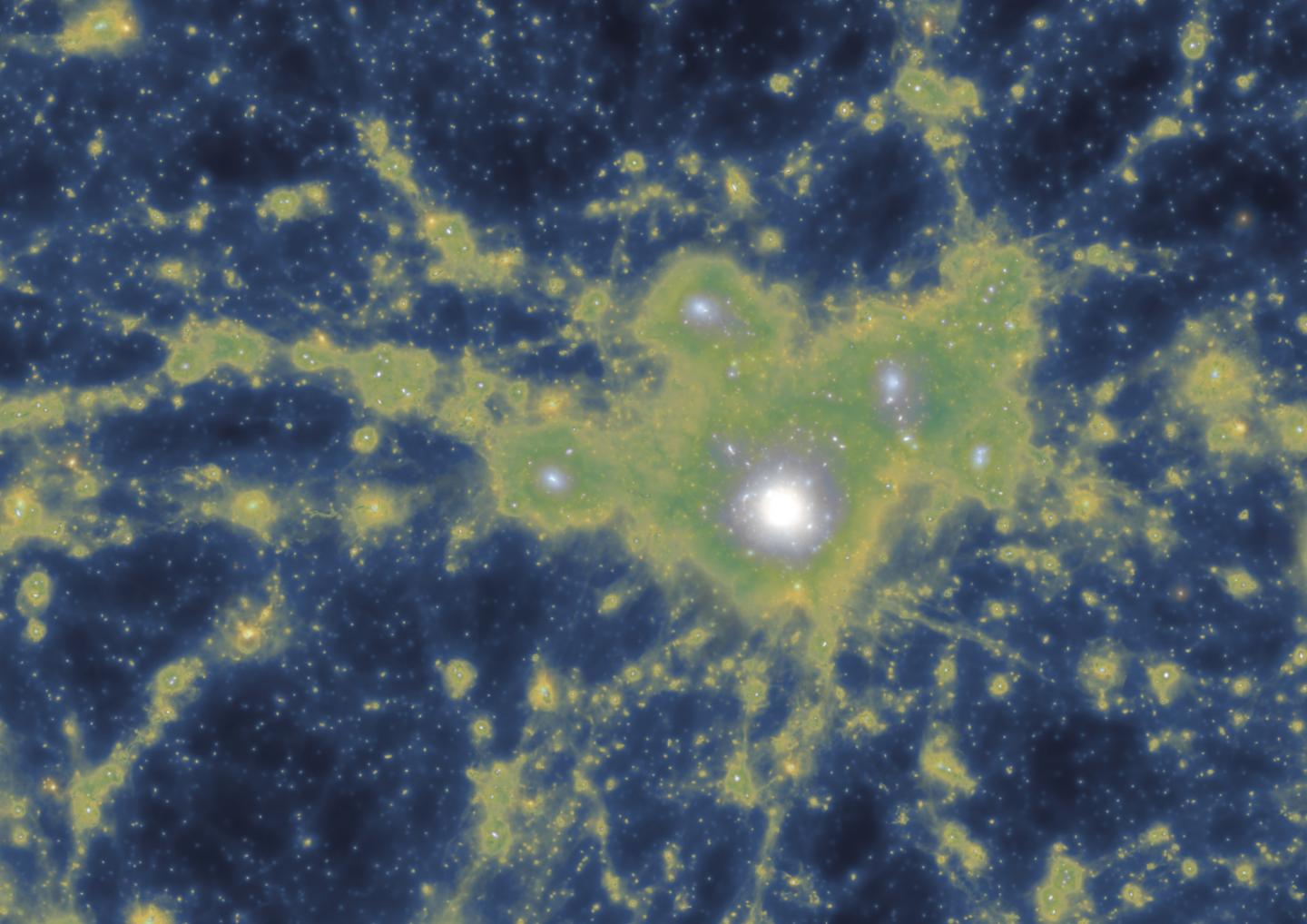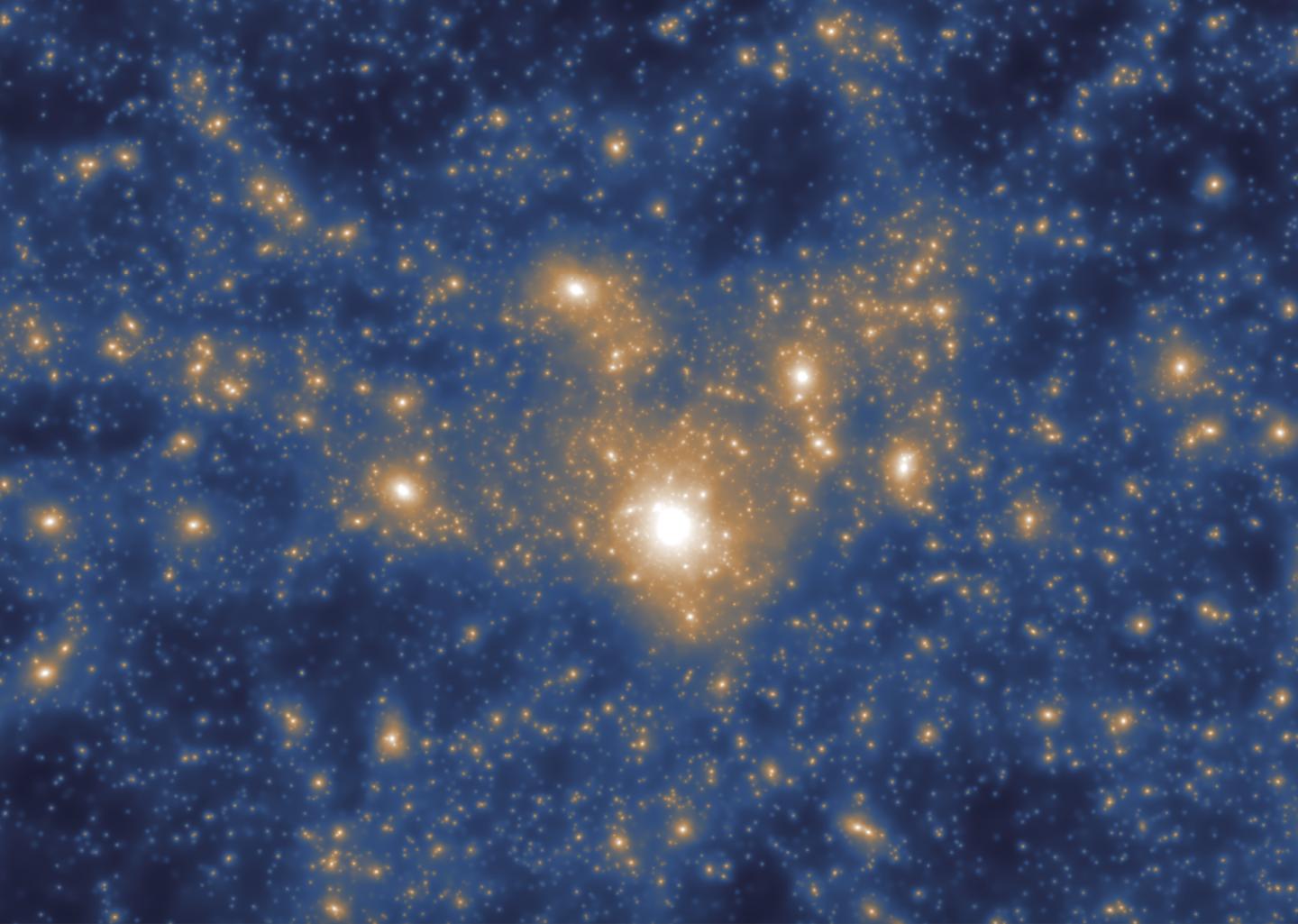How monster galaxies feed off of their neighbors
In very large, ancient galaxies, usually more than ten billion light-years away from us, many stars behave differently than in the Milky Way, where the large majority of stars obediently follow the motion of arms rotating about the center of the galaxy. Why is that? It seems galaxies have something in common with people: when there’s too much substance around their mid-sections, it’s usually a result of too much eating. Giant galaxies have swallowed up too many of their neighbors, one after the other, as researchers have now shown in the Astrophysical Journal.
In their study, the research team analyzed data from the Multi-Object Spectroscopic Emission Line (MOSEL) in a cosmological simulation on a supercomputer, in order to find out how these ancient monster galaxies developed. If they were created under their own power, the stars within them should move in defined patterns. But that situation seems to be the exception rather than the rule. Apparently, over all these years, massive galaxies have simply had more time to swallow up neighboring galaxies than our own Milky Way.
Of course, this might also reveal something about our own future – the Milky Way is currently in the process of eating its two satellite galaxies (the Magellanic Clouds). However, in the case of the Andromeda Galaxy, we have a neighbor approaching us that is much larger. So, we’ll probably all be inhabitants of the Andromeda Nebula someday – if our species is still around by then.

